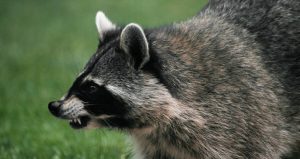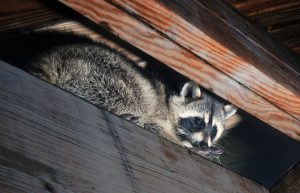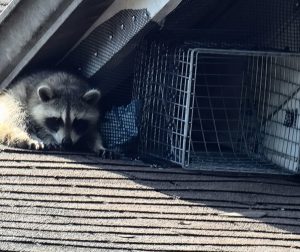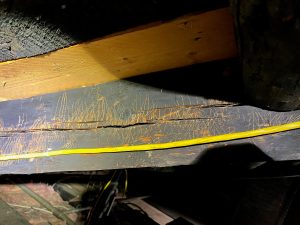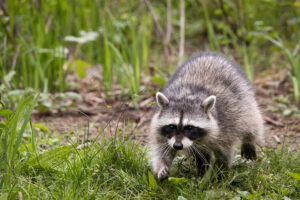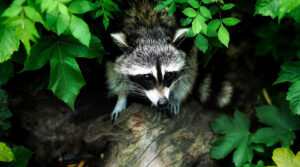The raccoon is an example of an animal species that has had great success adapting to humans. Well known for their exasperating habit of raiding trash cans (and not bothering to clean up afterward), the raccoon is one of the most common animals found in residential areas.
It is also one of the smartest—it has been reported that raccoons have operated water taps in order to get a drink! Raccoons squatting on your property can be a formidable nuisance, but fortunately, we have them pretty well figured out, and a little knowledge goes a long way when it comes to evicting these masked mammals.
What is a Raccoon's Natural Habitat?
In their natural habitat, raccoons prefer to live in forested areas or woods, preferably close to a water body. When it comes to setting up a den, the ideal raccoon den is one that offers undisturbed shelter—usually in the form of a tree hollow —and is near a food and water source.
Raccoons are famously indiscriminate with their diet—in their natural habitat, they prefer food found in or near water, like crayfish, frogs, snails, and clams, but they will also eat fruit, melons, corn, nuts, and much more.
They usually den in the cavities of trees, rock crevices, or burrows dug by other animals, but raccoons have no problem setting up shop in attics, chimneys, crawl spaces, storm sewers, and under porches.
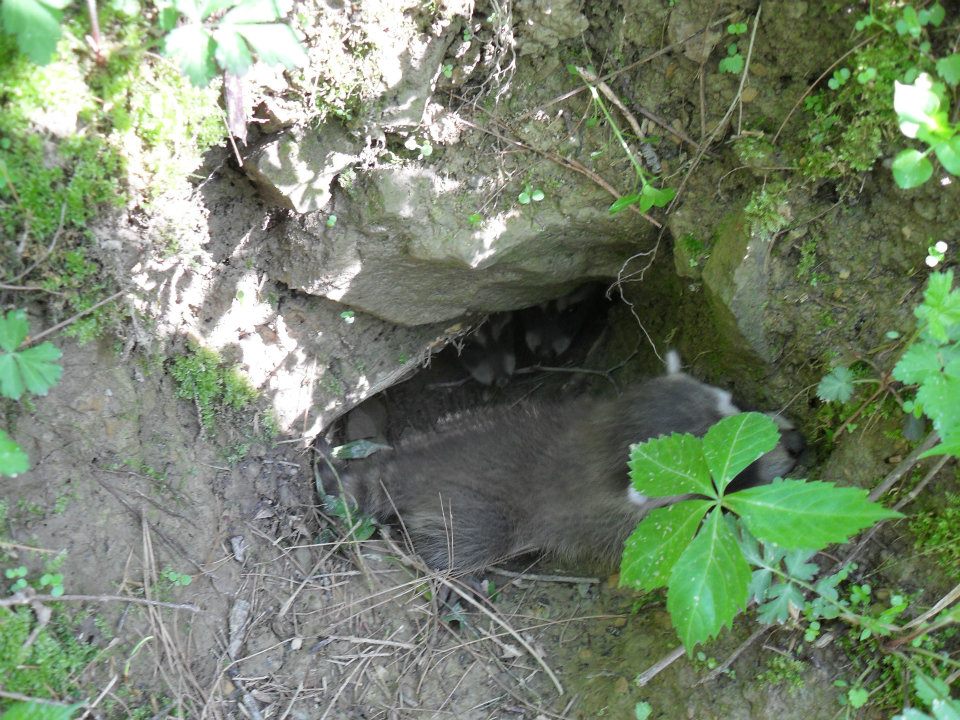
Where Do Raccoons Live in Your Home?
Our houses simply make great habitats, as they are warm, sheltered, and often located near food sources. These properties also make our homes premier locations for raising young, so if you suspect you have raccoons, it’s also quite possible you have a litter of baby raccoons to contend with. Baby raccoons—called kits—are typically born between March and April.
Raccoon in Attics
Like many animals, raccoons commonly take up residence in attics, as they are usually warm, quiet, and seldom visited by humans. Raccoons are some of the largest animals you’ll come across in a residential setting, so if a raccoon is in your attic, you might hear loud thumping noises that simply couldn’t be produced by a smaller animal.
Raccoon in Chimneys
Raccoons commonly den in chimneys because they are often unsecured, easy to climb, and resemble tree hollows. Raccoons can manually remove chimney caps.
Raccoon Control in Chimneys
The best way to ensure raccoons (or any animal, for that matter) stay out of your chimney is to install a commercial stainless steel chimney cap.
Raccoons on Roof
Raccoons often access rooftops by climbing trees, siding, and drainage pipes. Raccoons on roofs can cause significant damage to your property. Females are known to destroy soffits, fascia boards, shingles, vents, and insulation to establish denning sites. Once a raccoon creates or enlarges a hole in the rooftop, it becomes an easy pathway to the attic.
Raccoon on Roof Control
Preventing a raccoon from climbing onto your roof is difficult. These clever creatures can climb virtually any surface. Raccoon traps are the best way to get rid of a raccoon on the roof, but the trap must be monitored frequently. Installing metal flashing and tree trimming is the best way to stop a raccoon from climbing onto your house.
Raccoon in Crawlspaces
Crawl spaces are another secluded area of the home that raccoons often help themselves to. While raccoons commonly nest and raise their young in houses, they rarely do so below the house, opting instead to place the litter up in the attic or walls. A raccoon in your crawlspace, therefore, is likely a solitary adult.
Raccoons Under Decks and Porches.
Yet another area that raccoons frequent. Common signs that you have raccoons under your deck are rustling and thumping noises, a strong odor of feces or urine, and hand-looking footprints around the area.
Raccoons in the Yard
How to Get Rid of Raccoons
The most effective raccoon control is exclusion. Raccoons are getting into your house somewhere; those entry points need to be sealed with materials raccoons can’t break.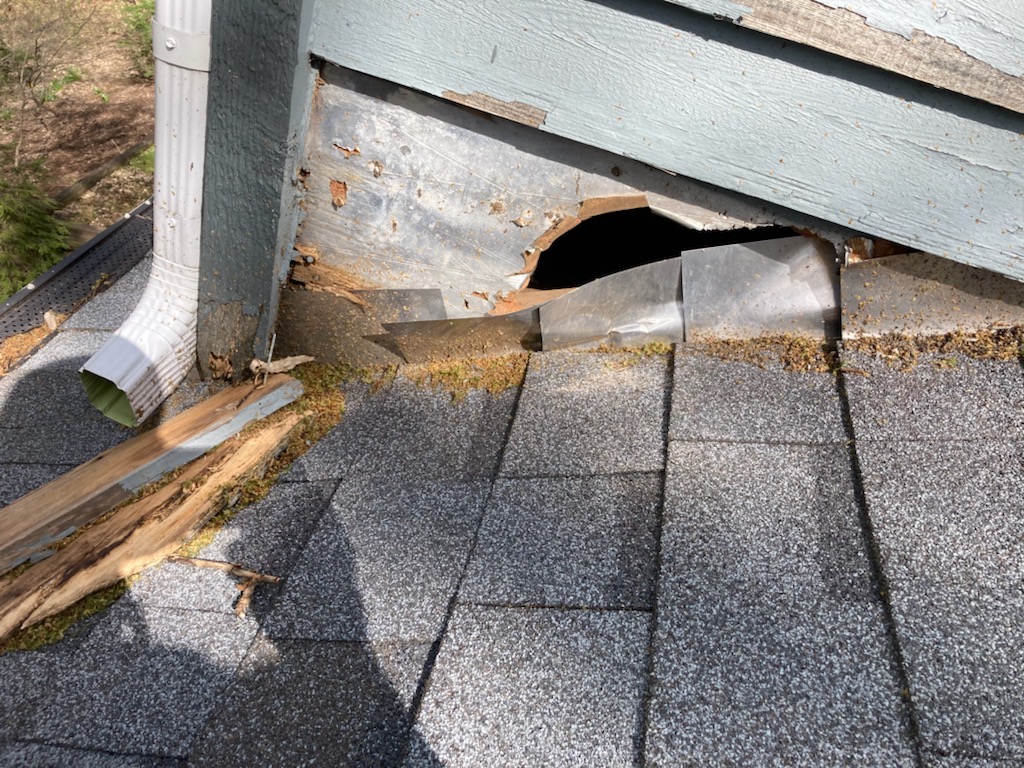
Raccoons are very responsive to mild “humane harassment” techniques, but they can grow accustomed to repellents.
Raccoons are nocturnal, so shining a bright light into the den’s entrance will convince the raccoon that the location is no longer safe, and it should hit the road. The MSPCA recommends that you turn these devices off periodically, so the mother will feel safe to re-enter to retrieve her young.
Grab a radio and place it near the den’s entrance. Interestingly, raccoons tolerate the sound of music more than they do human voices, so tune it to a talk show, preferably one with a loud and boisterous host. Consider warning your neighbors beforehand.
If a mother has juveniles with her, the smell of male raccoon urine can drive the family away.
The most effective means to remove a raccoon is a cage trap or an excluder valve. An excluder valve lets the raccoon exit but blocks the return.
Raccoons are tenacious and clever animals. They will work diligently to re-enter their den. Trust the experts to solve your raccoon problem guaranteed.
Call Trutech In to Get Raccoons out


